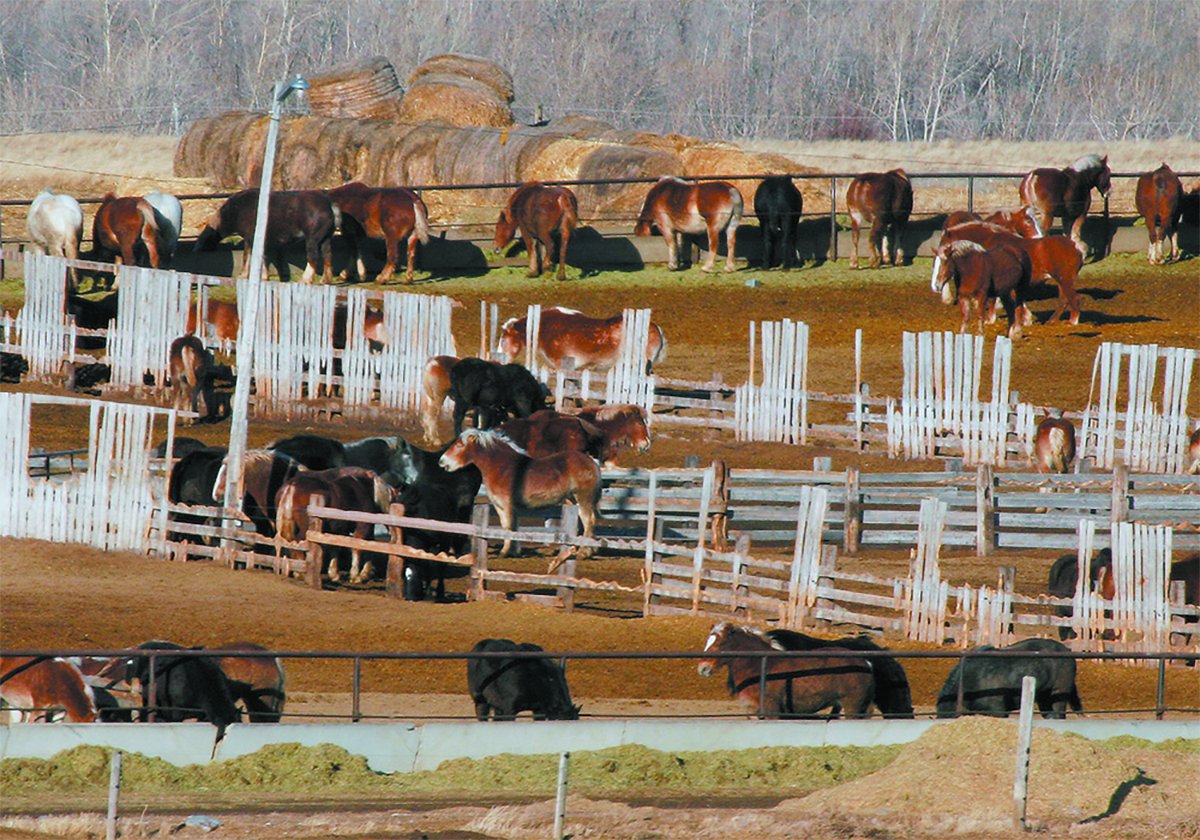A farmer-led legal challenge against the Canadian Wheat Board based on the Charter of Rights was dismissed in a judgment handed down April 11 by Federal Court Justice Francis Muldoon.
Costs were also awarded to the defendants, but the amount has not yet been determined.
The case was heard at the end of last year in Calgary and Winnipeg. It involved 21 farmers, the Alberta Barley Commission and the Western Barley Growers Association.
Following release of the 80-page decision, the plaintiffs met with legal counsel to decide their next move.
Read Also

Canada’s slaughter horse industry lacks transparency
The lack of clear reporting and public access to data keeps the industry largely hidden, leaving questions about humane treatment and traceability unanswered.
Supporters of the court challenge expressed bitter disappointment at the ruling and vowed their fight to end the board’s monopoly has not ended. Wayne Kriz, a Rimbey, Alta., farmer and one of those named in the lawsuit, said he thought the barley growers had a good chance of winning.
“You go through life the last three years hearing all the reasons why this is such a solid case and why one should win and I guess in a way it is a shock,” he said.
Wheat board supporters were elated at the news, noting it comes just weeks after a victory for the board in the barley marketing plebiscite.
“We’re very pleased,” said Darrin Qualman, executive secretary of the National Farmers Union. “We beat the CWB opponents at the ballot box and now we have beaten them in the courtroom.”
The plaintiffs had to convince the judge that the Canadian Wheat Board Act violates their right to sell wheat and barley as they choose according to the Charter of Rights and Freedoms.
Lawyers from the federal department of justice said the board doesn’t violate farmers’ rights and the judge agreed.
In his written decision, Muldoon said according to the charter, there is no protection for individuals’ economic or commercial aspirations.
Nor does the charter protect Canadians from confiscation of their property, although he emphasized the wheat board does not confiscate farmers’ grain.
He said the wheat board may not be the best means of marketing grain because of some unfair operations like adding dockage at port terminals and charging farmers for cleaning.
He also recognized there is frustration among some farmers with the workings of the board.
“The point however, is that the charter is not the proper instrument to fix what is quintessentially a political problem,” wrote the judge.
Muldoon said decisions to change the wheat board act belong to Parliament. A future government may decide to deregulate the market because it has the right to regulate trade and commerce.
He said the government has created a board that is in the interests of all western Canadian farmers and protects them from the dramatic effects of an open market.
“The Canadian Wheat Board Act does nothing more than ensure that if one produces wheat and barley in the designated area, where the vast majority of both crops is produced, one and all must play by the legislated rules,” said the decision.

















